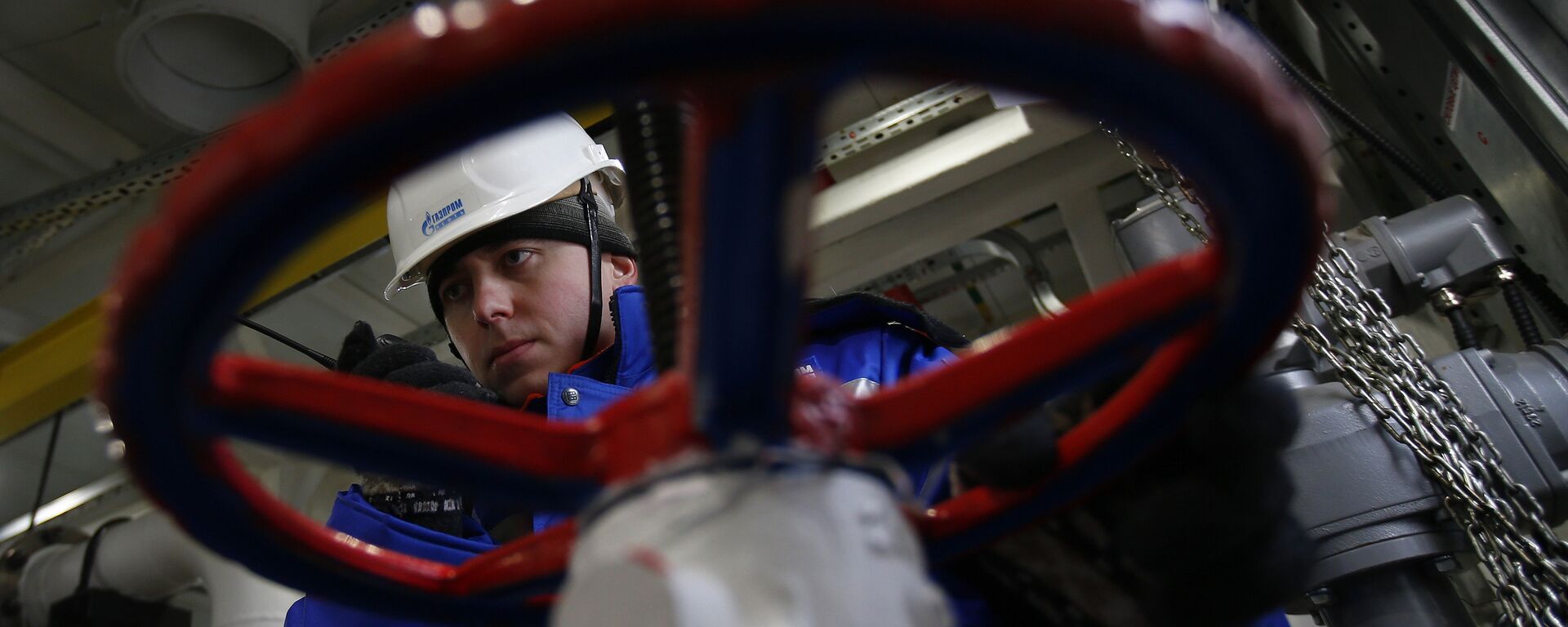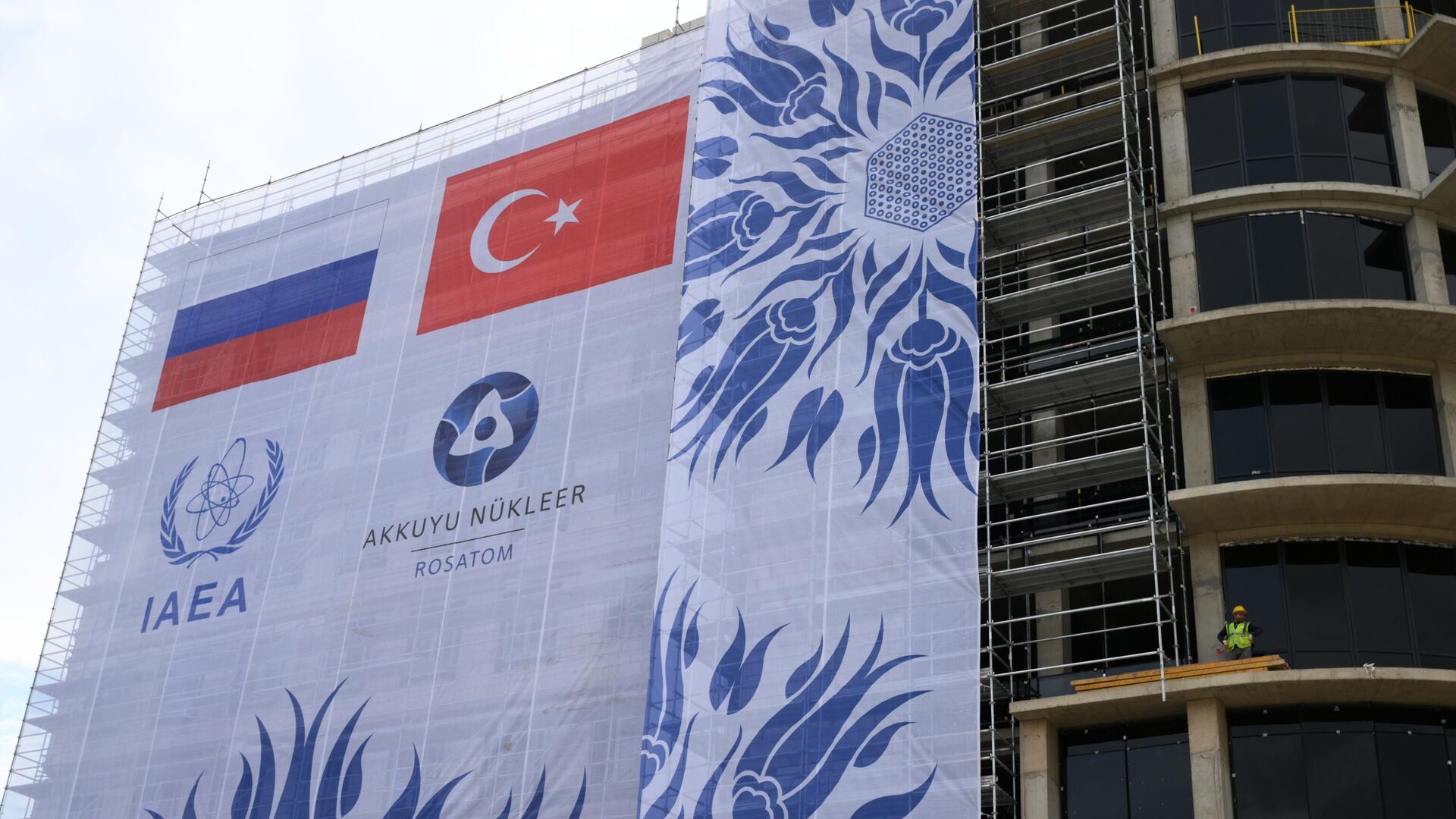https://sputnikglobe.com/20240325/turkiye-seeks-to-extend-cooperation-with-rosatom-in-new-npp-project---energy-minister-1117544024.html
Turkiye Seeks to Extend Cooperation With Rosatom in New NPP Project - Energy Minister
Turkiye Seeks to Extend Cooperation With Rosatom in New NPP Project - Energy Minister
Sputnik International
Turkiye is interested in expanding cooperation with Russian state nuclear corporation Rosatom in the project of Turkiye's second nuclear power plant (NPP) in the city of Sinop, Turkish Energy Minister Alparslan Bayraktar said on Monday
2024-03-25T15:05+0000
2024-03-25T15:05+0000
2024-03-25T15:05+0000
world
turkiye
ankara
russia
rosatom
turkish energy ministry
bayraktar
nuclear power plant
nuclear power
nuclear power plants
https://cdn1.img.sputnikglobe.com/img/07e7/04/1b/1109872703_0:0:3073:1728_1920x0_80_0_0_72b8c559640b5bf1c804ab1b74c17ba6.jpg
"We are building the Akkuyu [NPP], but we would like to extend our cooperation with Rosatom, hopefully in the Sinop project," Bayraktar told the plenary session of the Atomexpo 2024 international forum. Turkiye plans to focus on small modular reactors in the future, which will enable the country to meet its CO2 emission reduction targets, he added. Ankara is negotiating with different partners their participation in the NPP projects in Sinop and the region of Trakya in the Balkan part of Turkiye, Bayraktar told journalists on the margins of the forum. In February, Rosatom head Alexey Likhachev said that Ankara had made a "political decision" to entrust Rosatom with the construction of the Sinop NPP, adding that the economic parameters of the project were being discussed with the Turkish Energy Ministry.
https://sputnikglobe.com/20230904/what-is-the-russia-turkiye-gas-hub-and-why-is-it-important-1113114324.html
turkiye
ankara
russia
Sputnik International
feedback@sputniknews.com
+74956456601
MIA „Rossiya Segodnya“
2024
Sputnik International
feedback@sputniknews.com
+74956456601
MIA „Rossiya Segodnya“
News
en_EN
Sputnik International
feedback@sputniknews.com
+74956456601
MIA „Rossiya Segodnya“
Sputnik International
feedback@sputniknews.com
+74956456601
MIA „Rossiya Segodnya“
turkey and russia energy cooperation, rosatom in turkey, russian npp in turkey, russia builds npp in turkey
turkey and russia energy cooperation, rosatom in turkey, russian npp in turkey, russia builds npp in turkey
Turkiye Seeks to Extend Cooperation With Rosatom in New NPP Project - Energy Minister
SIRIUS, Russia (Sputnik) - Turkiye is interested in expanding cooperation with Russian state nuclear corporation Rosatom in the project of Turkiye's second nuclear power plant (NPP) in the city of Sinop, Turkish Energy Minister Alparslan Bayraktar said on Monday.
"
We are building the Akkuyu [NPP], but we would like to extend our cooperation with Rosatom, hopefully in the Sinop project," Bayraktar told the plenary session of the
Atomexpo 2024 international forum.
Turkiye plans to focus on small modular reactors in the future, which will enable the country to meet its CO2 emission reduction targets, he added.
Ankara is negotiating with different partners their
participation in the NPP projects in Sinop and the region of Trakya in the Balkan part of Turkiye, Bayraktar told journalists on the margins of the forum.

4 September 2023, 16:30 GMT
In February, Rosatom head Alexey Likhachev said that
Ankara had made a "political decision" to entrust Rosatom with the construction of the Sinop NPP, adding that the economic parameters of the project were being discussed with the Turkish Energy Ministry.
The construction of Turkiye's first NPP, Akkuyu, was launched by Russian nuclear giant Rosatom in 2018. All four units of the NPP are scheduled to be equipped with VVER-1200 reactors, which are the most advanced Russian-designed reactors capable of generating 1,200 megawatts of electric power apiece. The plant is expected to produce 35 billion kilowatt-hours of electricity per year, covering 10% of Turkiye's needs.



